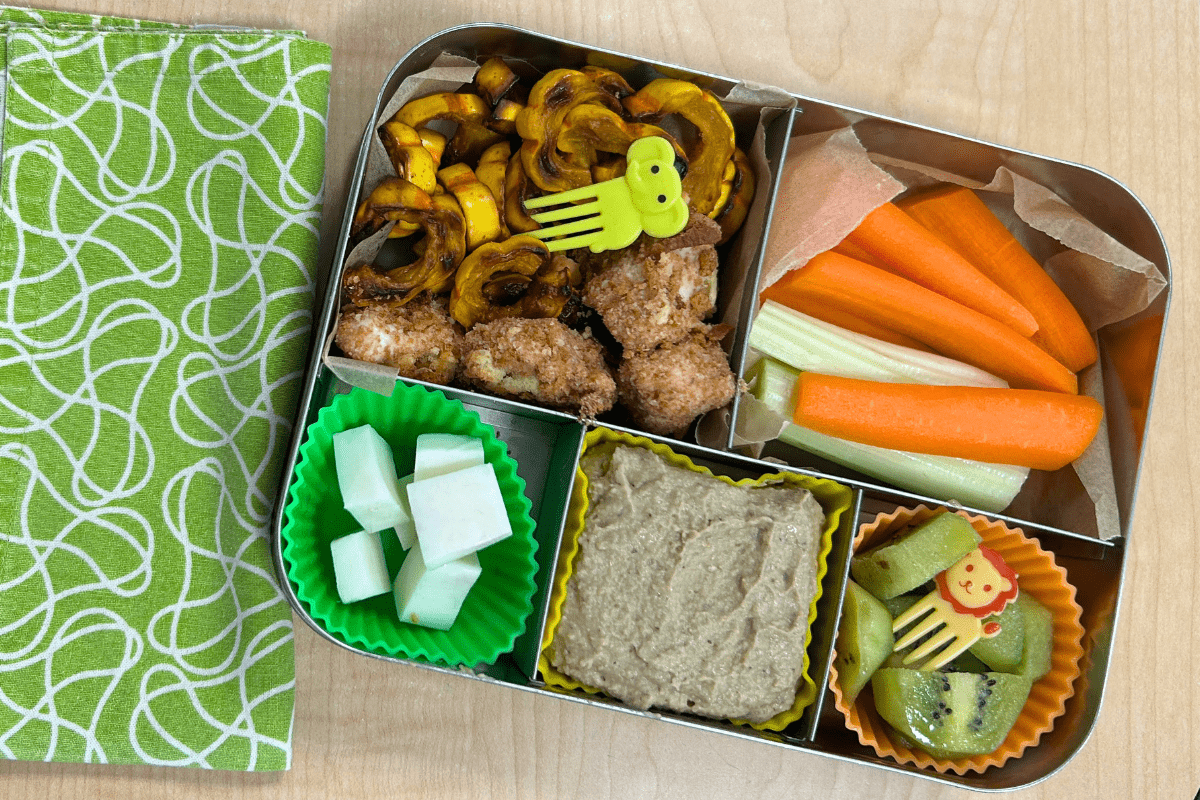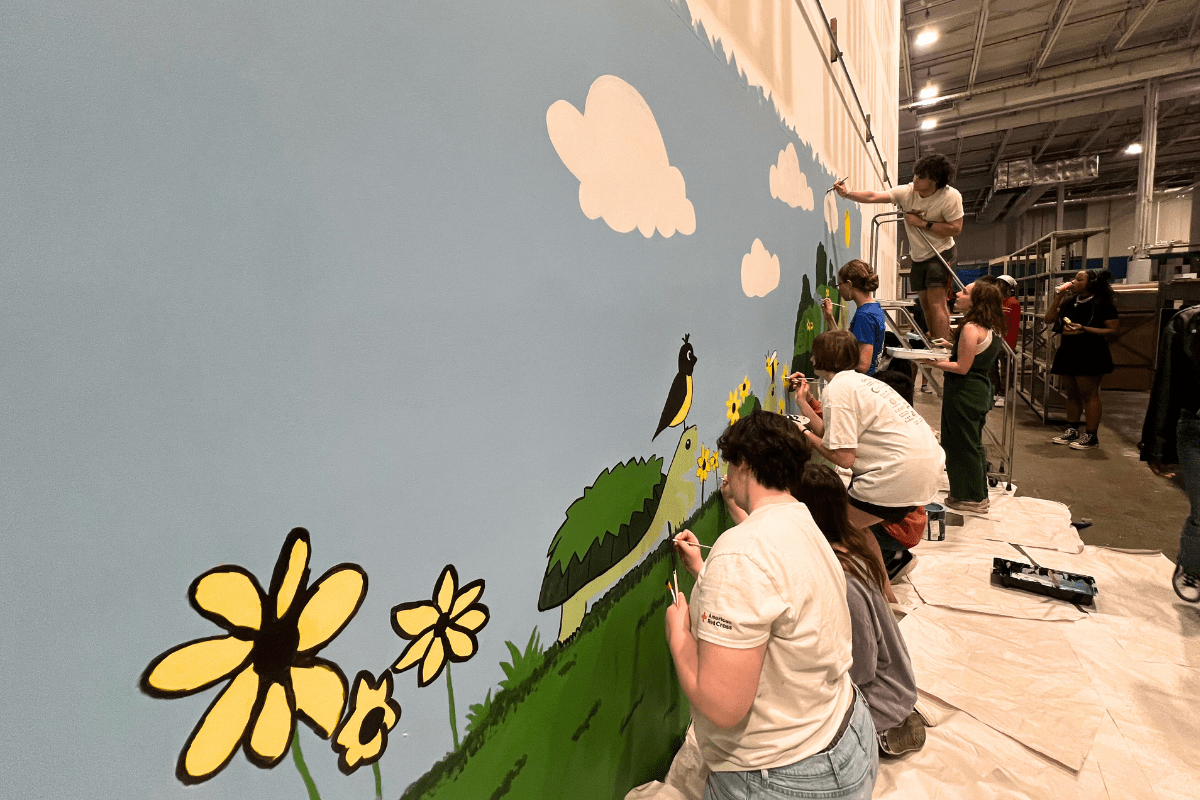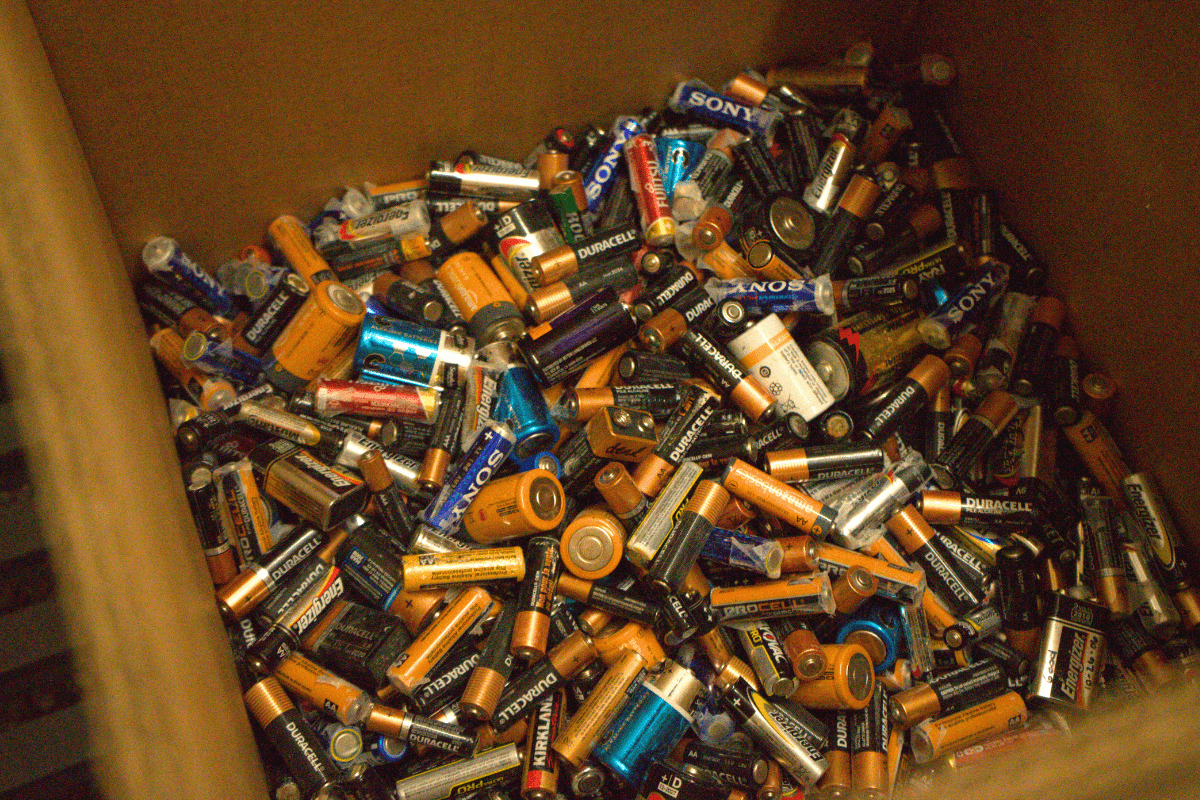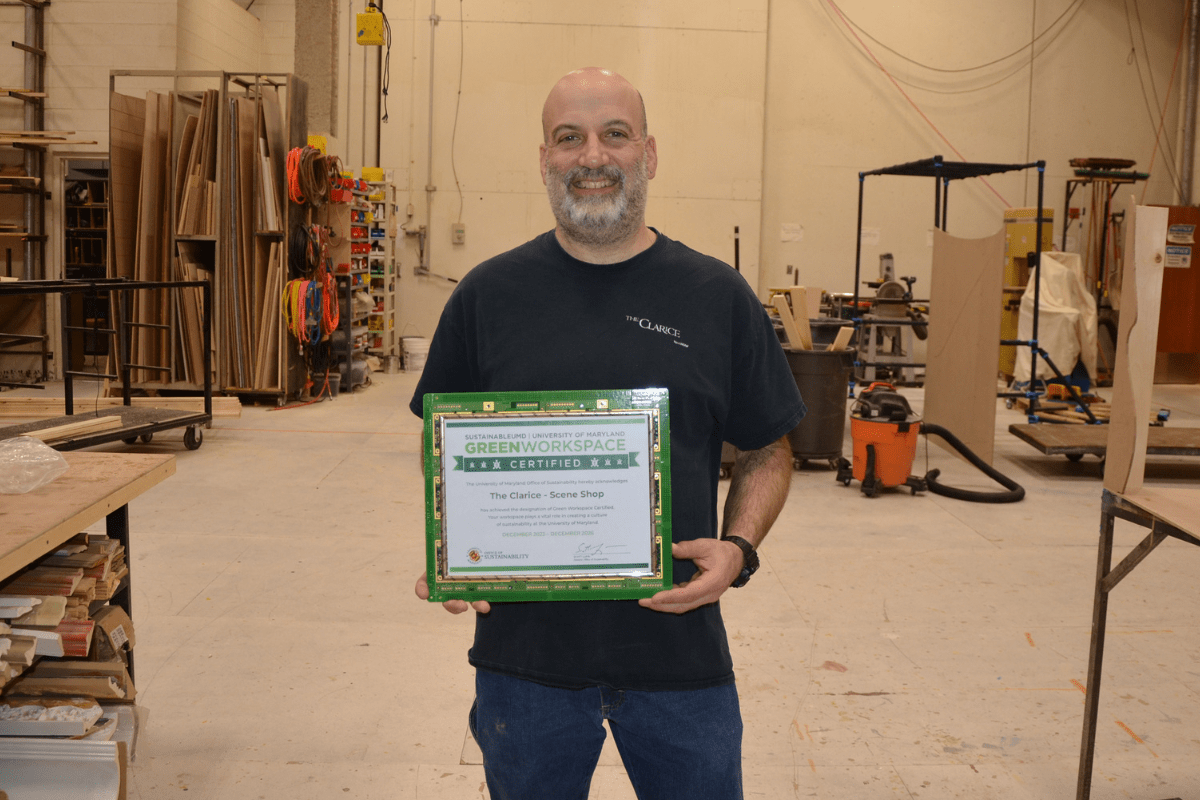When it comes to climate change, innovation is essential for driving forward positive progress. Staff and faculty can play an important role in implementing innovative solutions within their workspaces to help save water, reduce waste, educate others on the impacts of their actions, and build a culture of sustainability. These creative efforts can count towards a workspace’s Green Workspace certification checklist. While not required to earn Green Workspace certification, the Office of Sustainability highly encourages units, offices, and departments to consider how they can adopt innovative practices or procedures as part of their Green Workspace experience.
The Office of Sustainability (OS) is available to discuss and support your interests in implementing innovative sustainability projects within your workspace. Please email us at sustainability@umd.edu to connect with an OS staff member. Below is a list of examples of innovative projects implemented by UMD staff and faculty as part of the Green Workspace program.
Innovation Credit Funding Opportunities
Interested in implementing an innovative sustainability project in your workspace? All students, staff, and faculty are eligible to apply to the University Sustainability Fund and the Sustainability Mini-Grant to help bring your ideas to life. Visit our grants page to learn more.
Special Awards
To recognize and celebrate workspaces that implement novel, innovative actions and/or practices that exceed baseline sustainability efforts, the Office of Sustainability offers two special awards: Innovation Award and Leadership Award. These awards are administered based on submissions through the Green Workspace program final certification form. Those selected for an award will be recognized at the annual Green Workspace Appreciation Lunch hosted in May of each year. Please contact sustainability@umd.edu with any questions.
Innovation Award
Through the Innovation Award, we acknowledge the numerous creative ways workspaces implement actions to consume mindfully, purchase thoughtfully, commute smart, conserve energy, and create community. We also recognize that environmental sustainability extends beyond these categories and that different workspaces have unique opportunities to create individualized programs/projects that are a better fit for their team.
Leadership Award
The Leadership Award aims to recognize the Green Workspace Leaders who go above and beyond the requirements of the Green Workplace program and beyond their normal day-to-day activities to truly embed sustainability into their office, team, and workflow. Those earning the Leadership Awards are also individuals who were highly engaged with the Green Workplace program and their cohort.
Previous Award Winners
2023-2024
Innovation Award
- Sarah Humud, Honors Humanities
Leadership Award
- Jason Baer, Office of Environmental Affairs
- Reuven Goren, The Clarice Scene Shop



